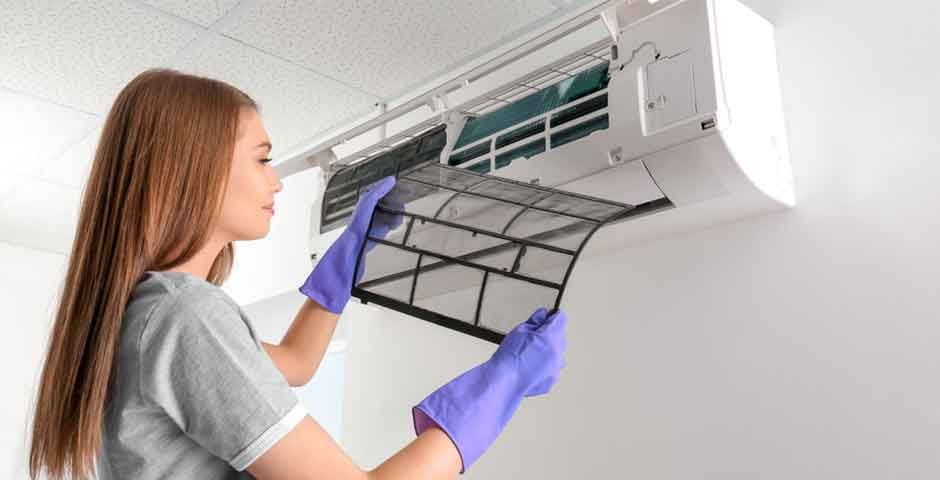Air conditioning has become essential to our lives, providing an escape from sweltering summer days and keeping our homes comfortable year-round. Unfortunately, there are times when these trusty appliances let us down, leaving us in a lukewarm or even downright hot environment. To avoid such situations, it is important to understand the factors that can contribute to air conditioner breakdowns. Identifying any potential malfunctions early on can prevent the AC from experiencing a complete failure later on. Here, we will delve into the various reasons that can cause an AC to stop working.
Reasons that can lead to an AC failure
Here are some of the main reasons that can lead to the failing of an AC:
1. Lack of maintenance
Regular maintenance is an essential part of keeping an air conditioner running optimally. When maintenance is neglected, several problems can arise that lead to the unit breaking down. Dust and debris accumulation in the air filters can restrict airflow, causing the motor to work harder than necessary as it strains to circulate air through the filters; this extra strain can cause the unit to overheat, leading to potential damage or malfunction. Dirty condenser coils can also inhibit heat transfer from inside the building, resulting in reduced cooling efficiency and higher energy costs. For these reasons, it is crucial to schedule routine maintenance for your AC system, including filter cleaning, coil cleaning, and overall system inspection. By regularly caring for your AC unit and ensuring that all components are properly maintained and working correctly, you will be able to avoid any potential damage or breakdowns before they occur and keep your AC running smoothly for years to come.
2. Refrigerant leaks
Refrigerant is an essential component of air conditioning systems, as it helps to circulate cooled air throughout the home. However, like all mechanical systems, refrigerant leaks can occur over time due to various factors such as corrosion, vibrations from loose fittings, or physical damage. If left unchecked, these leak sources can result in a decreased cooling capacity of the unit and eventual system shutdown. It is important to pay attention to warning signs such as reduced cooling performance or loud hissing noises coming from the system. An experienced technician should be consulted as soon as possible upon noticing any of these signs, as they will be able to accurately identify the source of the leak and repair it accordingly. After fixing the underlying cause of the leak, the refrigerant levels must be recharged in order for your AC unit to restore peak functioning.
3. Electrical issues
Electrical issues are a common cause of air conditioning systems failing. Wiring, connections, and components can all be faulty or damaged, leading to a reduced power supply to the unit which can cause it not to turn on or have frequent power fluctuations. It is essential to check the electrical connections for any kind of damage or lose connections that might affect the system’s performance. If you suspect an electrical issue, it is best to seek professional assistance from either a qualified electrician or an HVAC technician who can accurately diagnose and resolve the problem. Regular inspection and maintenance of electrical components help ensure that they are operating correctly and safely, minimizing the risk of costly breakdowns due to such issues in the future.
4. Frozen evaporator coil
The evaporator coil is an essential component of an air conditioning system. Its role is to absorb heat from the air, allowing for cooling to occur throughout the home. However, when the evaporator coil becomes too cold, it may freeze and impair the AC’s ability to function effectively. This can be caused by a variety of factors, such as clogged filters, blocked ducts, or inadequate refrigerant levels which restrict airflow and cause temperatures in the coil to drop lower than usual. When this happens, ice will form on the coils and lead to diminished cooling capacity. Sometimes even forcing the unit to shut down due to potential damage that could be caused if it continues operating under these conditions. Therefore, it is important to ensure that air filters are changed regularly, ductwork is kept clean and unblocked, and adequate refrigerant levels are maintained in order to help prevent frozen evaporator coils from occurring.
Understanding the common causes behind air conditioning (AC) unit failures is essential in order to maintain the optimal functioning of our cooling systems and help avoid costly repairs. Preventive AC service plays a key role in averting problems. To ensure that AC units continue to deliver reliable performance over time, it is important to invest in professional AC service that consists of regular maintenance and filter cleaning. Additionally, periodic system inspections can identify potential problems before they become too expensive or irreversible. Ultimately, comprehensive AC service is paramount for maximizing the lifespan and effectiveness of your cooling system. Don’t underestimate its importance in safeguarding your investment.






